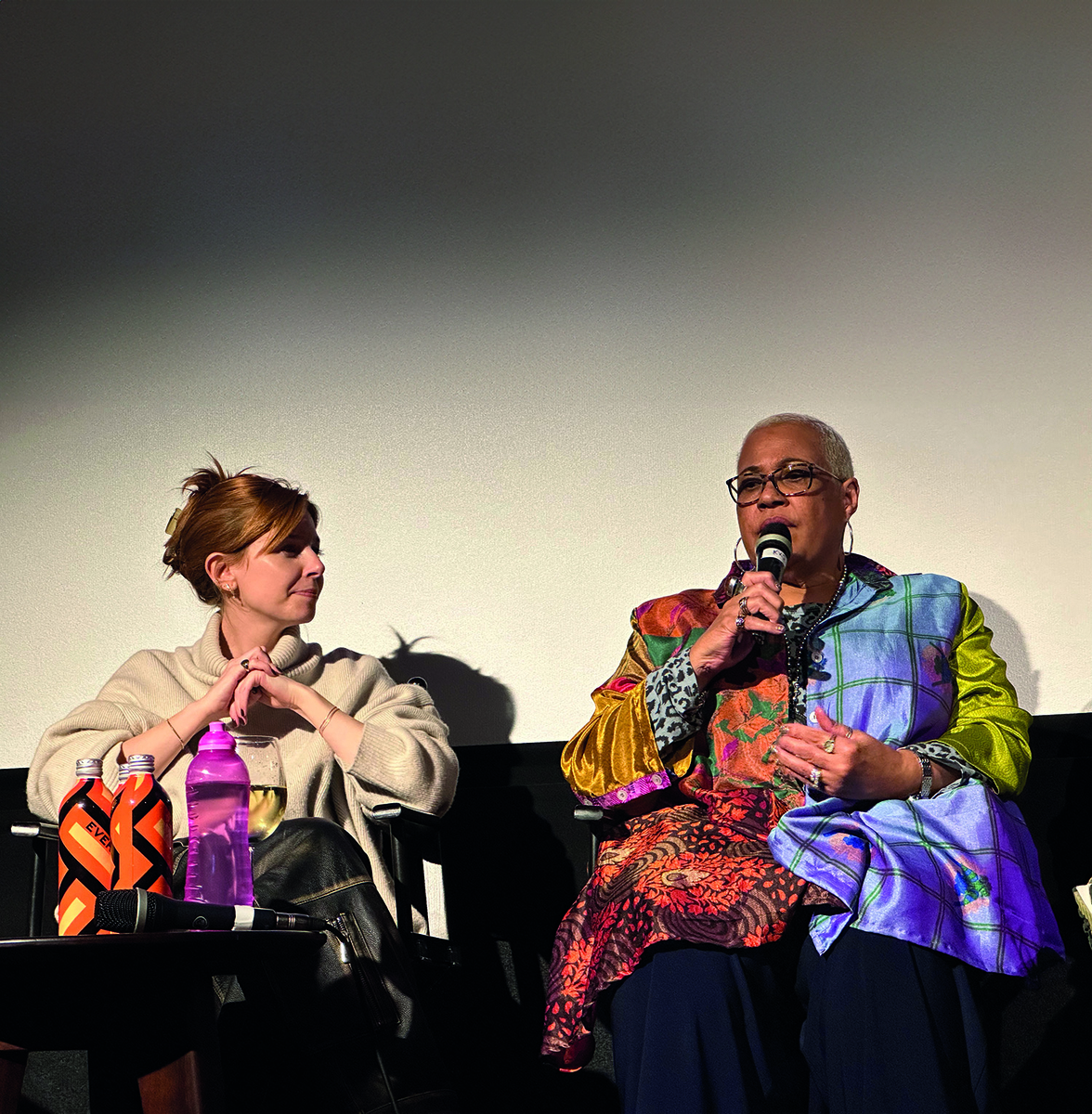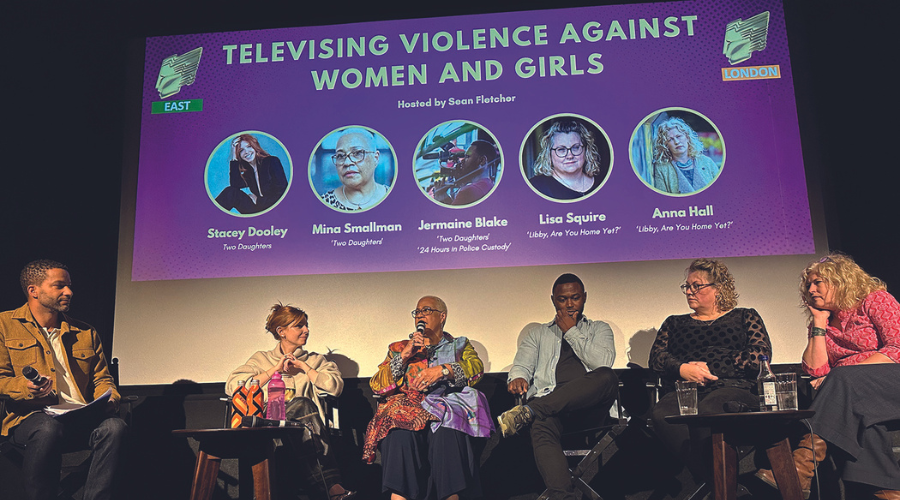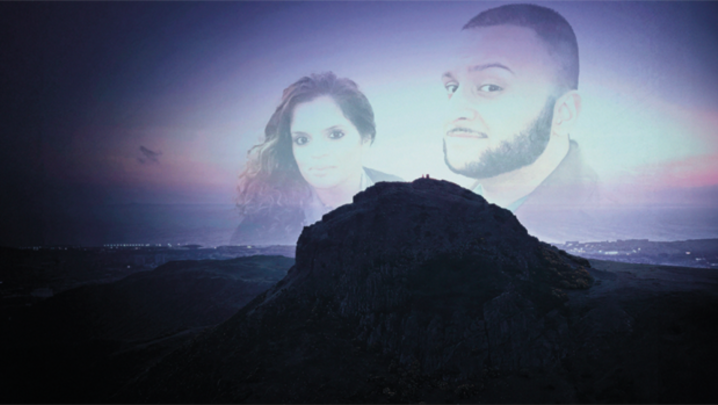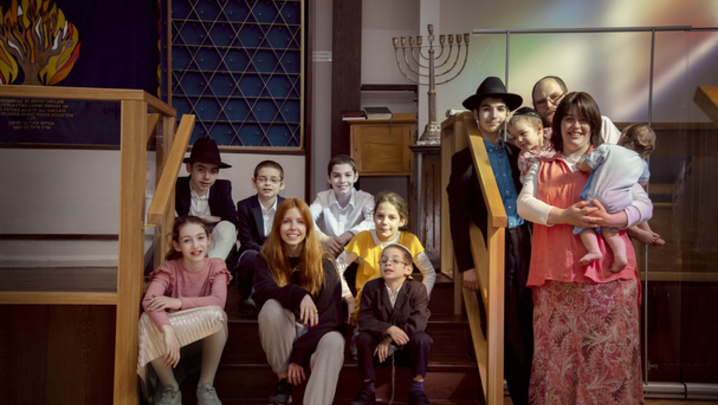An RTS event analyses three documentaries that sensitively handle crimes against women
In May this year, police chiefs declared violence against women and girls a national threat in recognition of some shocking statistics: in the year ending March 2022, 194,683 sexual offences were recorded against women and girls in England and Wales; 9% of women aged 16 and over were victims of domestic abuse; and 3% of women aged 16 and over were victims of sexual assault.
The RTS hosted an important session last month, chaired by TV presenter Sean Fletcher, to discuss the problem and how factual TV has responded to it. It also outlined some of the ethical challenges involved in making programmes about the issue. The audience heard the powerful testimony of the families of three victims, as well as from the makers of three documentaries.
Two Daughters, shown on BBC Two, told the appalling story of how Metropolitan Police officers took selfies beside the bodies of two murdered sisters, Bibaa Henry and Nicole Smallman, after they were discovered in a north London park in 2020. The panel included the women’s mother, Mina Smallman, presenter Stacey Dooley and director Jermaine Blake.
The Bafta- and Grierson Trustees Award-winning Libby, Are You Home Yet? is a three-part Sky Crime series that investigated the disappearance of university student Libby Squire on a night out in Hull in 2019. On the panel with its director, Anna Hall, was Libby’s mother, Lisa Squire.
Channel 4 series 24 Hours in Police Custody included an edition in which Bedfordshire Police investigated a case of alleged grooming and multiple abuse. It was also directed by Blake.
“This is not sensationalism, this is not entertainment”
Discussing these documentaries in turn, the producers and their subjects shared their motivations for bringing the stories to screen.
Dooley began: “We didn’t have a budget when we started filming. We didn’t have a commission, but we were not doing it for that. I did it because Mina called me and said: ‘I want you to make this film about my girls.’”
The presenter asked the grieving mother: “I’m a white woman. Should it be a black woman presenting this documentary?” Smallman told her: “Stacey, we’re black women, we know what we’re going through. We are tired of being outraged. We need you to be as outraged with us, collectively. This is a societal problem.”
Dooley said her team’s focus was on allowing Smallman to stay in charge of her own narrative: “We had countless conversations, we hung out and spoke a lot more when the cameras were off, and we’re pals. There was a genuine rapport there.”
Smallman was intent on telling not just the story of her daughters’ murders, but also how she felt let down by the police: “What the police had done, what they should have done.”
Blake added that everyone involved agreed they didn’t want to focus on the man who had killed both women: “We decided very early on not to include him, and to talk about his part in it as little as possible. What we were trying to do in the film was to bring out and understand the richness of their lives and, through their tragedy, try and make some sort of change.”
In the same way as Smallman has channelled her grief into conversations with the police to help improve processes, Lisa Squire, Libby’s mother, now speaks to young people across the UK about how to keep themselves safe while socialising.

She said the only reason to participate in a film about her daughter’s murder was to effect change: “I would only do it if it came from a point of learning, because Libby was passionate about education and learning.”
She remembered being approached by multiple documentary producers in the aftermath of her daughter’s death: “They wanted to tell the sensational side of Libby’s story: ‘Drunken student raped and murdered by Polish butcher.’ What they should have said is: ‘Girl killed by man’.”
Squire, along with Humberside Police, chose Hall to direct because of her wish to raise awareness through her film. Hall remembered thinking: “This is not sensationalism, this is not entertainment.”
Like Blake, Hall wanted to concentrate on the life of the person, not the death. She said: “We really wanted people to fall in love with Libby and we wanted to reflect her accurately. Our situation was different from Mina’s in terms of how the police responded. Humberside Police were incredible. They gave us every asset they had. They gave us logbooks, they gave us all the CCTV, they helped us to understand every minute detail of the inquiry.”
Both Mina Smallman and Lisa Squire recounted their battles with the press in the midst of their grief. For Smallman, this was bound up with the discovery that her daughters’ deaths would never attract the same amount of attention given to a white woman. She remembered: “Someone sent me an article titled ‘Missing white girl syndrome’. I’d never heard of it before, but I knew it wasn’t the journalists or film-makers who were doing it that way. It was the editors or the producers who were deciding how important people were.
“I’m part of the human race, but I have to speak up for women of colour because we’re the last to be thought of, we’re the last to be taken care of, we’re the last to be protected. I know that now, but I have to do it for everyone. I do it for every woman and girl. But I say: ‘Hey, I’m a woman of colour, we’re important, too.’”
For Squire, the big shock was that, wherever the police went to search for her daughter, the press were right behind them, even putting the investigation at risk by offering to pay for tip-offs.
She said: “The press should not be buying information that could be prejudicial to the case. Holding the police to ransom, which was exactly what they were doing, should just not happen.”
For producers, their duty of care to the participants was a particularly important aspect of this kind of documentary-making, said Blake. He described 24 Hours in Police Custody’s “robust aftercare programme”, which was necessary because victims could be left with so little time for themselves due to the demands of police and TV interviews.
He explained: “We approach these victims right after they’ve given an ABE – that’s [short for] Achieving Best Evidence. They sit in a room for hours and they go through exactly what’s happened. We had to maintain a relationship with the victims. They can access counselling at any point – straight after the film goes out, during filming or for years afterwards. They also always have a point of contact for [their dealings with] us.”
Hall agreed that this duty of care was paramount: “It’s not a question of us turning up, making a film, and then saying goodbye.
“We wanted Libby’s friends and the people who were with her on the night to be involved. That’s a very delicate series of conversations, because we have a duty of care to all those young people.”
This session, although understandably emotional at times, ended on an upbeat note, with Smallman and Dooley presented with the RTS East On-screen Personality Award. This was in joint recognition for their work and commitment to investigative journalism and activism directed at ending violence against women and girls.
Just before, Smallman and Squire spoke about the comfort that making and watching the films had brought them. Smallman told the audience: “It enabled me to unpack all the stuff that we were going through. I put it on sometimes because I’m still processing [the experience].”
Squire agreed: “Like Mina, I watch it quite frequently because it’s my Libby time. It gave Libby her voice. I didn’t find it difficult at all. I found it cathartic.”
Report by Caroline Frost. ‘Televising violence against women and girls’ was an RTS East and RTS London event held at the Everyman, King’s Cross, London, on 16 October. The producer was Chiara Di Filippo.







